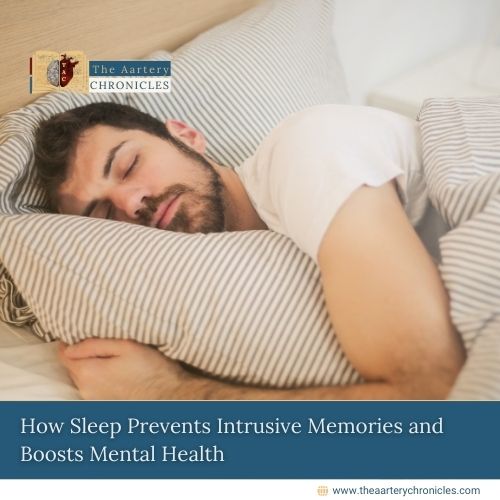

Sleep as a Shield Against Unwanted Memories: Insights from New Research
A recent study by researchers at the University of East Anglia (UEA) sheds light on how sleep protects us from intrusive, unwanted memories. The findings, published in the journal Proceedings of the National Academy of Sciences (PNAS), suggest that sleep deprivation disrupts brain regions responsible for keeping such memories at bay. This breakthrough could pave the way for innovative treatments for mental health conditions like depression and anxiety.
The Link Between Sleep and Mental Health
Sleep disturbances are known to play a significant role in the onset and persistence of mental health disorders. However, the exact reasons behind this connection have remained unclear. This study explores how deficits in memory control mechanisms, exacerbated by sleep loss, may contribute to emotional dysregulation and intrusive thoughts commonly seen in conditions like
- Depression
- Anxiety
- Post-traumatic stress disorder (PTSD)
The Science Behind Memory Control
The research team, led by Dr. Marcus Harrington from UEA’s School of Psychology, used functional neuroimaging to investigate how sleep deprivation affects the brain’s ability to suppress unwanted memories. The study revealed that sleep-deprived individuals struggle to activate the right dorsolateral prefrontal cortex—a brain region responsible for controlling thoughts, actions, and emotions—during memory suppression tasks.
Simultaneously, these individuals exhibited heightened activity in the hippocampus, a region linked to memory retrieval, suggesting a diminished capacity to suppress unwanted memories.
REM Sleep: A Key Player in Emotional Resilience
The study highlights the role of rapid eye movement (REM) sleep in rejuvenating brain regions critical for memory control. Participants who spent more time in REM sleep were better equipped to engage the dorsolateral prefrontal cortex, effectively preventing intrusive memories from surfacing.
Dr Harrington explains, “Memories of unpleasant experiences can intrude into our awareness, particularly in response to reminders. While these intrusions are fleeting for most, they can become vivid and distressing for individuals with mental health disorders. Our findings emphasize the importance of sleep, particularly REM sleep, in maintaining control over our memories and thoughts.”
A Groundbreaking Study
The study involved 85 healthy adults tasked with suppressing unwanted memories while undergoing functional MRI scans.
- Half of the participants had a full night of restful sleep in a lab setting, while the other half stayed awake.
- The rested participants demonstrated superior memory control and brain activation patterns compared to their sleep-deprived counterparts.
Implications for Mental Health
This research highlights the critical role of sleep in emotional well-being. By revealing how sleep deprivation impairs memory control, the findings open new avenues for addressing mental health disorders.
As Dr Harrington notes, “Understanding the mechanisms behind intrusive memories is essential for improving emotional health and reducing the global burden of mental illness.”
Conclusion
The study, titled “Memory control deficits in the sleep-deprived human brain,” highlights the intricate relationship between sleep, memory control, and emotional regulation. It provides compelling evidence for the role of REM sleep in fortifying the brain’s ability to manage unwanted memories, offering hope for improved treatments and prevention strategies for mental health conditions.
Source: Inputs from various media Sources
I’m a pharmacist with a strong background in health sciences. I hold a BSc from Delhi University and a pharmacy degree from PDM University. I write articles and daily health news while interviewing doctors to bring you the latest insights. In my free time, you’ll find me at the gym or lost in a sci-fi novel.









